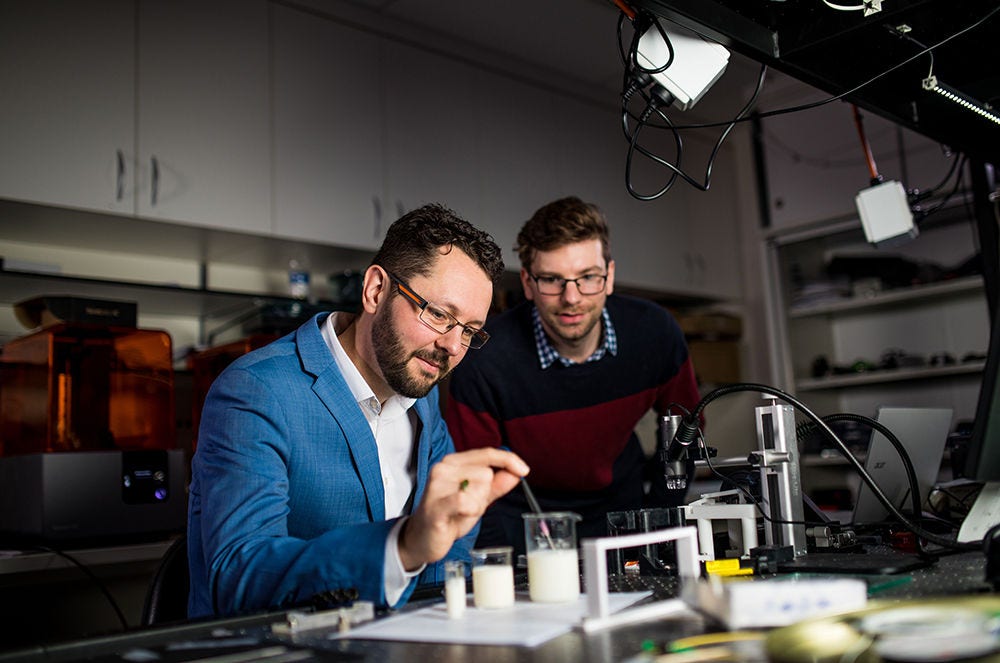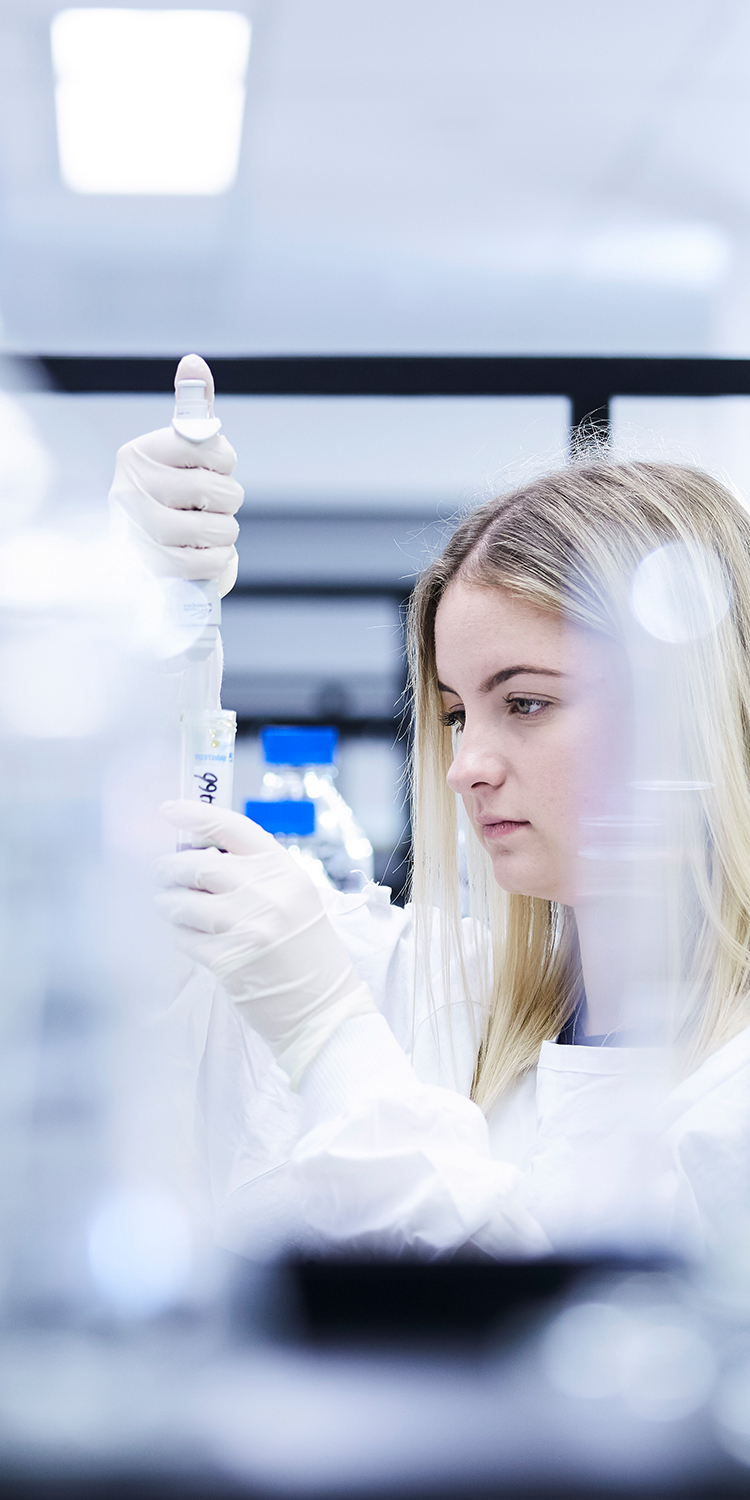Entry requirements
Admission criteria
To be eligible, an applicant must have achieved at least one of the following minimum entry requirements and demonstrate they fulfil any prerequisite and essential criteria for admission. In cases where there are more eligible applicants than available places, admission will be competitive with ranks based on the entry criteria.
Secondary education (Year 12)
Completion of a secondary education qualification equivalent to the South Australian Certificate of Education (SACE).
Vocational Education and Training (VET)
Completion of an award from a registered training organisation (RTO) at Certificate IV (AQF level 4) or higher.
Higher education study
Successful completion of at least 6 months full-time study (or equivalent part-time) in a higher education award program.
This degree requires a Grade Point Average (GPA) equivalent to an Adelaide University 4.5 on a 7-point scale for entry.
English language entry requirements
In addition, international students who speak English as an additional language must have obtained one of the following standards within the last two years prior to admission. Possession of one or more of these qualifications, in addition to the academic entry requirements, does not, in itself, guarantee a place at Adelaide University. Applications are considered on an individual basis and selection is competitive. Where previous study/work experience was conducted in English, the application must be accompanied by certified documentation from the educational institution/employer certifying that the language of instruction/employment was English.
- IELTS Overall 6.5
- IELTS Reading 6
- IELTS Listening 6
- IELTS Speaking 6
- IELTS Writing 6
Please access the following link for a comprehensive list of English language tests accepted by Adelaide University and other important information in relation to meeting the University’s language requirements:
Equivalent English qualificationsInternational admissions by country
| Country | Requirement | Score |
|---|---|---|
| Australia | ATAR | 75 |
| Bangladesh | Higher Secondary Certificate (HSC) | 4.85 |
| Canada | Ontario Secondary School Diploma (OSSD) | 70% |
| China | Gaokao | 65% |
| Denmark | Studentereksamen (stx: Upper Secondary School Diploma) | 4 (Fair) |
| France | French Baccalaureate | 11.5 |
| Global | International Baccalaureate | 26 |
| Hong Kong | Diploma of Secondary Education (HKDSE) | 17 |
| India | CBSE and CISCE | 75 |
| India | State Board Examinations | 85 |
| Indonesia | SMA III | 78% |
| Kenya | Certificate of Secondary Education (KCSE) | B+ |
| Malaysia | Matrikulasi | 2.78 |
| Malaysia | Sijil Tinggi Persekolahan Malaysia (STPM) | 2.78 |
| Malaysia | United Entrance Certificate (UEC) | 20 |
| Nepal | National Examinations Board (NEB) | 3.01 |
| Norway | Upper Secondary School Certificate (Vitnemal fra den Videregaende Skole) / Vitnemal For Videregaende Opplaering | 3.6 |
| Phillippines | High School Diploma (Grade 12) (Academic Track) K12 | 87% |
| Singapore | Singapore GCE Advanced Levels | 8 |
| South Korea | College Scholastic Ability Test (CSAT) | 320 |
| Sri Lanka | GCE A Levels | 9 |
| Sweden | Upper Secondary School Leaving Certificate | 14.0 |
| Taiwan | GSAT % | 65% |
| Thailand | Matayom 6 | 3.40 |
| UK / Global | GCE Advanced Levels | 8 |
| USA / Global | Advanced Placement (AP) | 8 |
| USA / Global | America College Test (ACT) | 22 |
| USA / Global | Scholastic Assessment Test (SAT) | 1130 |
| Vietnam | Bằng Tốt Nghiệp Trung Học Phổ Thông (Vietnamese Year 12) | 8 |

This program is only available to applicants studying at Adelaide University via the Haide College agreement.
Eligible applicants can apply now to study in 2026, via our International Application System .
Additional Enrolment Information – FAQs | Adelaide University
Why Bachelor of Biotechnology (Honours)?
Explore the intersection of biology, technology and innovation.
The Bachelor of Biotechnology (Honours) offers a direct-entry pathway to an Honours year at Adelaide University, provided a competitive GPA is maintained. You’ll undertake advanced research or industry projects and gain hands-on experience with cutting-edge techniques in molecular biology, genomics and bioprocess engineering.
Collaborate with industry leaders through initiatives like The Academy by Deloitte, enhancing your professional readiness.
Whether you're aiming to develop sustainable solutions or advance healthcare technologies, this degree equips you with the skills to make a tangible impact in agriculture, pharmaceuticals or environmental management.

Overview
The Bachelor of Biotechnology (Honours) is a four-year direct-entry program designed for high-achieving students aiming to excel in the biotechnology sector.
You must maintain a competitive GPA to be guaranteed entry into the Honours year. This program includes a significant research or industry-focused project. The degree integrates biology, engineering, and computer science, providing a comprehensive foundation in molecular biology, genetics, and bioprocess engineering.
Use advanced techniques such as gene editing and proteomics, and explore the ethical, environmental, and economic aspects of biotechnology.
Key features
Access an Honours year directly, provided you maintain a competitive GPA throughout the program.
Develop expertise in molecular biology, genomics, and bioprocess engineering.
Engage in hands-on research or industry projects during your final year.
Collaborate with professionals through The Academy by Deloitte, including a paid internship.
Customise your studies with specialisations in bioinformatics, chemistry, genetics, or microbiology.
Prepare for diverse careers in biotechnology, pharmaceuticals, and environmental management.
What you'll learn
The Bachelor of Biotechnology (Honours) at Adelaide University offers a comprehensive education in the science and application of biotechnology.
In your first year, you'll establish a solid foundation in biology and chemistry, also developing skills in data science.
The second year dives into molecular biology, metabolism, microbiology, and the principles of biotechnology, enhancing your understanding of biological systems and processes.
During your third year, you'll engage in advanced studies, including molecular and structural biology, and practical biotechnology applications, preparing you for real-world challenges.
Your final Honours year focuses on a substantial research project within your chosen specialisation, allowing you to apply your knowledge and skills to a significant scientific enquiry.
Throughout the program, you'll have opportunities to specialise in areas such as bioinformatics, chemistry, genetics, or microbiology, tailoring your education to your interests and career goals.

What courses you'll study
Complete 192 units comprising:
- 114 to 126 units for Core courses, and
- 66 to 78 units for Electives
Complete 114 to 126 units comprising:
- 126 units for all Core courses
| Course name | Course code | Units | |
|---|---|---|---|
|
Course name
Biology 1A: Molecules, Genes and Cells
|
Course code
BIOL1003
|
Units
6
|
|
|
Course name
Biology 1C: Molecular Biology and Biomedical Science
|
Course code
BIOL1031
|
Units
6
|
|
|
Course name
Biochemistry 2: Metabolism
|
Course code
BIOL2015
|
Units
6
|
|
|
Course name
Biochemistry 2: Molecular and Cellular Biology
|
Course code
BIOL2017
|
Units
6
|
|
|
Course name
Principles of Biotechnology 2
|
Course code
BIOL2019
|
Units
6
|
|
|
Course name
Microbiology 2
|
Course code
BIOL2021
|
Units
6
|
|
|
Course name
Biochemistry 3 Molecular and Structural Biology
|
Course code
BIOL3003
|
Units
6
|
|
|
Course name
Biochemistry 3 Molecular Basis of Cancer
|
Course code
BIOL3005
|
Units
6
|
|
|
Course name
Molecular and Biomedical Sciences Practical 3
|
Course code
BIOL3007
|
Units
6
|
|
|
Course name
Infection and Immunity 3A
|
Course code
BIOL3008
|
Units
6
|
|
|
Course name
Advanced Biological Sciences
|
Course code
BIOL4001
|
Units
12
|
|
|
Course name
Honours Biological Sciences Project
|
Course code
BIOL4002
|
Units
36
|
|
|
Course name
Chemistry 1A
|
Course code
CHEM1002
|
Units
6
|
|
|
Course name
Science of People, Society and the Future Planet
|
Course code
SCIE1001
|
Units
6
|
|
|
Course name
Data Skills for Scientists
|
Course code
STAT1000
|
Units
6
|
|
Notes
- Core courses -
- You may choose to complete a Free Elective in place of SCIE1001 - Science of People, Society and the Future Planet
- You may choose to complete a Program Elective - Level 3 in place of BIOL3008 - Infection and Immunity 3A
Complete 66 to 78 units comprising:
- 30 to 36 units from University-wide electives, and
- 12 units from Program electives - Level 2, and
- 24 to 30 units from Program electives - Level 3
| Course name | Course code | Units | |
|---|---|---|---|
|
Course name
Organic Chemistry 2
|
Course code
CHEM2001
|
Units
6
|
|
|
Course name
Medicinal and Biological Chemistry 2
|
Course code
CHEM2004
|
Units
6
|
|
|
Course name
Environmental Chemistry 2
|
Course code
CHEM2010
|
Units
6
|
|
|
Course name
Genetics 2A: Introduction to Genetic Analysis
|
Course code
BIOL2005
|
Units
6
|
|
|
Course name
Immunology and Virology 2
|
Course code
BIOL2008
|
Units
6
|
|
|
Course name
Molecular and Biomedical Science Practical 2
|
Course code
BIOL2900
|
Units
6
|
|
| Course name | Course code | Units | |
|---|---|---|---|
|
Course name
Plant Biotechnology
|
Course code
BIOL3017
|
Units
6
|
|
|
Course name
Protein Purification: Principles and Practice
|
Course code
BIOL6002
|
Units
6
|
|
|
Course name
Animal Biotechnology
|
Course code
BIOLX100
|
Units
6
|
|
|
Course name
Tech eChallenge
|
Course code
BUSI3901
|
Units
6
|
|
|
Course name
Medicinal and Biological Chemistry 3
|
Course code
CHEM3005
|
Units
6
|
|
|
Course name
Molecular Microbiology and Vaccines
|
Course code
PHAR5001
|
Units
6
|
|
|
Course name
Bioinformatics: Overview
|
Course code
PHAR5002
|
Units
6
|
|
|
Course name
Advanced Research Platforms
|
Course code
PHYS5000
|
Units
6
|
|
|
Course name
Science Professional Placement
|
Course code
SCIE3900
|
Units
6
|
|

